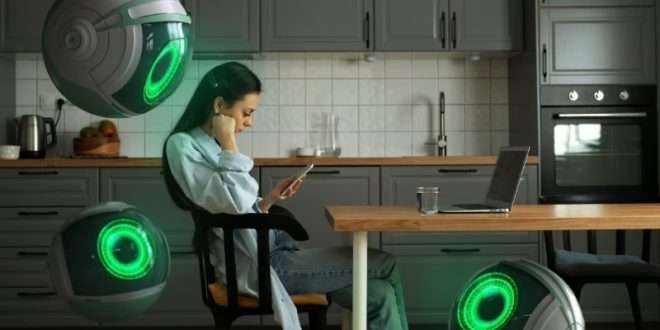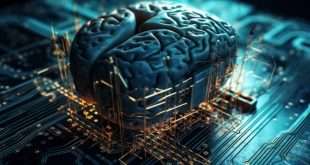We live in an era where technological advancements are transforming the way we interact with our homes. Smart home automation has taken center stage, and with the integration of Artificial Intelligence (AI), it is becoming even more powerful and efficient. In this blog, we delve into the exciting realm of AI-powered home automation and explore how it is revolutionizing the way we live. From web technology integration to cloud-based solutions, we’ll cover all the vital aspects of living smartly with AI. Let’s embark on this journey towards a more connected and intelligent home.
The Rise of AI in Home Automation
In recent years, AI has made significant strides, and its integration into home automation systems has opened up new possibilities. The ability of AI to learn and adapt to user preferences makes smart homes more intuitive and personalized. By analyzing data from various sensors and devices, AI algorithms can make real-time decisions to optimize energy consumption, enhance security, and improve overall convenience.
Web Technologies Driving Smart Homes
Web technology plays a crucial role in the seamless functioning of smart homes. From web development technologies to cloud computing, the backbone of smart home automation relies on interconnected devices communicating through the internet. Some of the key web technologies that power smart homes include:
Web Development Technologies
Modern web development technologies like HTML5, CSS3, and JavaScript enable responsive and user-friendly interfaces for smart home control apps. These technologies facilitate the creation of intuitive interfaces that allow homeowners to control their smart devices effortlessly.
Web Technologies List for Smart Homes
The web technologies list for smart homes is extensive, ranging from APIs (Application Programming Interfaces) that enable device communication to IoT (Internet of Things) protocols like Zigbee and Z-Wave. These technologies work together to create a robust and interconnected ecosystem of smart devices.
Web Computing for Smart Home Applications
Web computing technologies, such as cloud computing, are the backbone of smart home applications. Cloud-based solutions store and analyze data, provide remote access to devices, and offer seamless software updates, ensuring smart homes stay secure and up-to-date.
AI and Home Security
One of the most significant advantages of AI in home automation is its impact on security. AI-powered security systems can identify patterns and anomalies, detect potential threats, and send real-time alerts to homeowners. With features like facial recognition and behavioral analysis, AI makes smart homes safer and more secure.
The Role of Cloud in AI-powered Smart Homes
The cloud plays a pivotal role in the successful implementation of AI in smart homes. Cloud-based storage allows AI systems to process vast amounts of data from different devices and sensors in real-time. Additionally, cloud platforms offer scalability, ensuring smart home systems can accommodate future advancements and new devices seamlessly.
Enhancing Energy Efficiency with AI
AI-driven smart homes can optimize energy consumption by analyzing usage patterns and adjusting settings accordingly. Heating, cooling, and lighting systems can be automated based on occupancy and preferences, leading to substantial energy savings and a greener footprint.
The Future of AI-powered Home Automation
The future of home automation with AI is undeniably promising. As AI technology continues to advance, we can expect even more sophisticated and intelligent systems. From predictive maintenance of appliances to fully autonomous homes, AI will transform the way we interact with our living spaces.
Final Words
The convergence of AI and home automation is revolutionizing how we live and interact with our homes. From enhancing security to optimizing energy usage, AI brings unprecedented convenience and efficiency to our daily lives. Embracing AI-powered smart homes is not just a trend but a leap towards a future where our homes truly understand and cater to our needs.
Commonly Asked Questions
Q1: What makes AI-powered home automation different from traditional smart homes?
AI-powered home automation goes beyond basic rule-based automation. It leverages machine learning and data analysis to adapt to user preferences, making it more personalized and intuitive.
Q2: Is AI in home automation safe and secure?
Yes, AI in home automation is designed with security in mind. Advanced encryption and authentication measures protect data, ensuring that your smart home remains secure from potential threats.
Q3: Can AI save energy in smart homes?
Absolutely! AI can optimize energy consumption by learning usage patterns and adjusting settings accordingly. This leads to significant energy savings and a more sustainable lifestyle.
Q4: How does cloud computing contribute to AI-powered smart homes?
Cloud computing provides the processing power and storage needed for AI algorithms to analyze data from various devices in real-time. It enables seamless communication and scalability for smart home systems.
Q5: What can we expect from the future of AI-powered home automation?
The future holds exciting possibilities, from autonomous homes that anticipate our needs to AI-driven healthcare and wellness solutions integrated into smart homes. The potential for innovation is boundless.
 webfily
webfily



